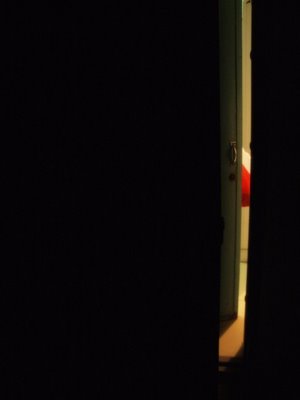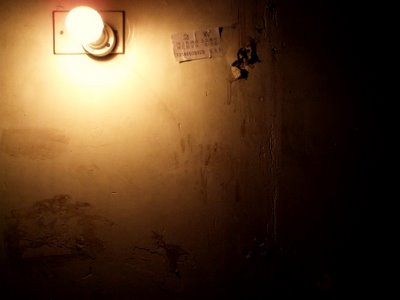Connections:
Tonight I had my adult class warm up with little creative sentence-building exercise: Somehow link two typically unrelated things or ideas, doesn’t matter how you link them. For instance, Pencil and Toothache could become: “I gnawed on my pencil during class, so it gave me a toothache” Or “She picked up her pencil and ticked the box for toothache. But I asked her to tick the box for stomachache. I wanted to get out of P.E.” I gave them only 1 minute to develop whatever they could then they all individually shared. To my surprise, all of them had come up with elaborate stories, some of which were true, which pleased me.
Here’s what I have been thinking about since: Having the objects precede the thought--indeed trying “to make” the objects conjure up the development of the thought/connections, seems to reveal something about the process of associative thinking. Its not so random, maybe? It’s like noticing a spider repelling from a ceiling. First, you see the spider then you see the thin translucent strand. But the strand existed before you could see it. Perhaps the thought connection exists before you “think” them.
I like the idea of trying to link my thoughts; I mean, to do it conscientiously. Often times you have a seemingly random thought and perchance you might retro-fit the connection. Its work you might go back and do once you’ve stop thinking “mindlessly.” Why was I thinking about that? Oh because I just saw this. But is it an exercise to work the other way, to be mindful of what your trying to reveal?
Tonight I had my adult class warm up with little creative sentence-building exercise: Somehow link two typically unrelated things or ideas, doesn’t matter how you link them. For instance, Pencil and Toothache could become: “I gnawed on my pencil during class, so it gave me a toothache” Or “She picked up her pencil and ticked the box for toothache. But I asked her to tick the box for stomachache. I wanted to get out of P.E.” I gave them only 1 minute to develop whatever they could then they all individually shared. To my surprise, all of them had come up with elaborate stories, some of which were true, which pleased me.
Here’s what I have been thinking about since: Having the objects precede the thought--indeed trying “to make” the objects conjure up the development of the thought/connections, seems to reveal something about the process of associative thinking. Its not so random, maybe? It’s like noticing a spider repelling from a ceiling. First, you see the spider then you see the thin translucent strand. But the strand existed before you could see it. Perhaps the thought connection exists before you “think” them.
I like the idea of trying to link my thoughts; I mean, to do it conscientiously. Often times you have a seemingly random thought and perchance you might retro-fit the connection. Its work you might go back and do once you’ve stop thinking “mindlessly.” Why was I thinking about that? Oh because I just saw this. But is it an exercise to work the other way, to be mindful of what your trying to reveal?
I am reminded of a scene in the film Saving Private Ryan. An officer was lamenting to his captain (Tom Hanks) that he was having trouble remembering what his brother’s face looked like after being apart for so long. The captain said he had a trick. You can’t try to think of just the face itself. Instead, you must think about a moment with that person, and then the laughing, the crying, the long gaze of disinterest, whatever face is delivered alongside all the other details of the memory. But I suppose it’s not really a trick. I would think this is how our memory works usually (I think). The “trick” is making the process itself come to the surface, so that we can control what it is we are trying to see deeply buried. I think this is what we do when really think hard, maybe it's a softcore definition of deconstruction--To “work backwards” from the thing that we want to understand, traveling along the connections that led us to have that thought in the first place; and, all the while, stopping to consider how those connections were made in the first place. Maybe I could understand much about myself if I practiced this kind of “think traveling” within my everyday realm. I think I do a little.
Preconceptions:

After we finished the connections game I passed out a little article about “Paris Syndrome” afflicting a few Japanese Tourists. Just a bit from the article:
PARIS (Reuters) - Around a dozen Japanese tourists a year need psychological treatment after visiting Paris as the reality of unfriendly locals and scruffy streets clashes with their expectations, a newspaper reported Sunday.
"A third of patients get better immediately, a third suffer relapses and the rest have psychoses," Yousef Mahmoudia, a psychologist at the Hotel-Dieu hospital, next to Notre Dame cathedral, told the newspaper Journal du Dimanche.
"Fragile travelers can lose their bearings. When the idea they have of the country meets the reality of what they discover it can provoke a crisis," psychologist Herve Benhamou told the paper.
The phenomenon, which the newspaper dubbed "Paris syndrome," was first detailed in the psychiatric journal Nervure in 2004.
Bernard Delage of Jeunes Japon, an association who helps Japanese families settle in France, said: "In Japanese shops, the customer is king, whereas here assistants hardly look at them...People using public transport all look stern, and handbag snatchers increase the ill feeling."
A Japanese woman, Aimi, told the paper: "For us, Paris is a dream city. All the French are beautiful and elegant...And then, when they arrive, the Japanese find the French character is the complete opposite of their own."
At first I thought the idea of the Japanese tourists being so romantic and naive about the realities of major metropolis was just absurd and hard to comprehend. I believe that Japanese Society is very literate and typically cultured and have plenty of access to books, art, and film that would do a good job of toning down the grandeur and sparkle of their preconception of the place, lending Paris preconception more true to reality. But have they refused to take in anything other than the conception of Paris as a “Dream City,” could they have not anticipated the typical urban apathy and the mild disarray of a non-Japanese city? Have they never seen a real French film, which would definitely portray the city from a more dismal angle? Not those yearly dozen, looks like.
I suspect that the tourist is susceptible to the romance of the exotic and all of the pre-conceptions created by the glossiness of advertising and films. But this does not exempt them from something of a self-inflicted psychological trauma once the realities are faced. I suspect that though the making of false preconceptions is sometimes hard to avoid because it happens at such sub-thinking level such as when we are growing up and we listen, watch and reinforce what our parents do/say. But eventually we do grow up and we start to question the “reality” created by the family because we gather more experiences to balance it out. If the tourist tunes out the negative, then they are culpable in his/her own preconception-keeping and they share a hand in their own demise. It’s not so crazy that a few went crazy. I think everyone’s lives contain similar crisis of reality.
“Paris Syndrome” is an exaggerated example of what happens when we allow some preconception or idea(for instance, a fantasy about a new life, another country/culture, a new infatuation) to persist unchecked. Otherwise what would be mild disappointment can turn into psychological trauma, and we see this all the time when people have nervous breakdowns because they are trying to uphold a self-imposed fantasy which one can fail to attain. This ability to govern the direction of a fantasy by steering it toward a mirage and into nowhere or making turns to safer waters, this is an ability I hope to acquire.
Reality:

I am in China. And I don't know what I will do next. Lately, I was clasping onto a few “fantasies”, but now I need to do the work to avoid the painful syndrome that would have befallen me, surely. Though, not that acknowledging reality doesn’t have its own pains.
I'LL-SEND-YOU-A-POSTCARD-CHALLENGE: Find the connection in the photos. Hint: both were taken while standing in the same place.
